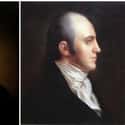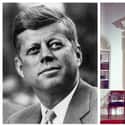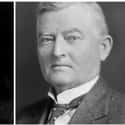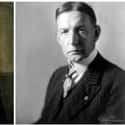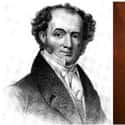-
(#1) Thomas Jefferson And Aaron Burr's Antagonism Changed The Electoral College
In 1800, only a decade after its development, the American presidential electoral process faced a dilemma that clearly demonstrated that the elections were still a work in progress. After all votes were cast and electors designated, the two Republican Party candidates, Thomas Jefferson and Aaron Burr, were tied with 73 electoral votes. In those days, parties did not designate a combined ticket, so it was possible for electors to cast two votes for any of four candidates. The one with the clear majority would win, and the one who came in second would become vice president. In the 1800 election, the Republican Party decided they wanted Jefferson to win the presidency and Burr to win the vice presidency.
However, things didn't exactly go as planned when the vote went to the House of Representatives. It took 36 ballots, but Jefferson eventually prevailed, chiefly because some of the Federalists in Congress – at the urging of Alexander Hamilton – abstained, throwing the election to Jefferson. For finishing second, Burr became the vice president but was immediately ostracized by Jefferson, who suspected that he had actually attempted to obtain the presidency for himself during the lengthy maneuvering and chicanery that went on during the election. Any of Burr's requests for official appointments in the new cabinet were ignored, and he was quickly isolated. By 1804, it was a foregone conclusion that he would be dropped from the ticket. When his unsuccessful 1804 campaign for Governor of New York was impacted negatively by Alexander Hamilton, Burr's political frustration boiled over into the notorious duel that killed the former Secretary of the Treasury and rendered the Vice President a political pariah.
Angered by his banishment from American politics, Burr left the US and hatched a misguided plot to seize the western territories and place himself at the head of his own country. The plan never got off the ground, and Jefferson's animosity prompted a trial for treason, with the President fully intending to hang his former Vice President. Luckily for Burr, Chief Justice John Marshall, who presided over the trial, set a very high standard of guilt, and Burr was acquitted. Still, the hostility of the political establishment and the President was so great that Burr fled to Europe and did not return for four years.
The election of 1800 caused such turmoil that the 12th Amendment to the Constitution was passed, which would subsequently allow electors to vote for a president and vice president instead of two votes for president.
-
(#2) Andrew Jackson Literally Threatened To Kill His VP, John Calhoun
Thomas Jefferson's legal and criminal pursuit of Aaron Burr would not be the last time a president threatened the physical well being of a vice president. John Calhoun was one of only two men to serve different presidents, a historical oddity perpetuated by the Electoral College's practice of having distinct competitions for president and vice president. Andrew Jackson and Calhoun's ticket in the 1828 campaign against John Quincy Adams was a match of convenience, and Jackson and Calhoun immediately began to clash over the issue of tariffs, which the VP felt discriminated against Southern states and favored the North.
This dispute escalated to the point that Calhoun threatened to use the legal concept of "nullification" in which a state ignored a federal law it felt was unconstitutional. Calhoun even threatened to secede from the Union, a threat that prompted Jackson to ask Congress to pass the 1833 Force Bill, which allowed the federal government to use military action to force state compliance. By then, Calhoun was a Senator, having resigned from his White House post in December of 1832. At one point during the dispute, Jackson famously stated: “John Calhoun, if you secede from my nation I will secede your head from the rest of your body.”
Andrew Jackson, who engaged in as many as 100 duels in his lifetime, probably wasn't kidding.
-
(#3) John F. Kennedy And Lyndon Johnson's Massive Egos Made For A Difficult Relationship
In 1960, John F. Kennedy was nominated for President after a very contentious primary campaign in which Kennedy's chief competition was Senate Majority Leader Lyndon Johnson. Johnson, a powerful Senator and take-no-prisoners campaigner used Kennedy's Catholic faith and health against him in his bid for the nomination. Because JFK knew the election would be difficult, he acquiesced and put Johnson on the ticket, which probably won him the election. But the Northeastern intellectuals who made up Kennedy's cabinet and administration belittled Johnson and shut him out of any meaningful role in the new government. The President rarely met with Johnson personally, and his brother, Attorney General Robert Kennedy, openly feuded with Johnson in public. Johnson was reduced to globetrotting around the world, an assignment that he felt was a way to humiliate him and get him out of Washington.
His treatment would result in a deep resentment that was expressed forcefully when President Kennedy was assassinated. When Jackie Kennedy and other administration officials returned to Air Force One for the flight back to Washington after Kennedy's assassination, they were confronted with Lyndon Johnson already in the President's cabin, having refused Jackie's request to remain in this prestigious location for one last time. This attitude was the final chapter in a relationship that deeply embittered Lyndon Johnson and permanently estranged him from the Kennedys, but he didn't care. Now, he was the President.
-
(#4) Al Gore Blamed Bill Clinton For His 2000 Defeat
By October of 2000, Al Gore and Bill Clinton were no longer even speaking to each other. Initially quite close during their two successful presidential campaigns, the two men drifted apart as the web of scandal engulfed Bill Clinton's second term. As early as 1999, Gore publicly criticized the President for his conduct concerning his affair with White House intern Monica Lewinsky and privately disliked the authority given to Hillary Clinton, which he felt came at his expense. Clinton began to be irritated by this attitude as well as Gore's deliberate refusal to campaign with him and believed that Gore also wanted to prove that he could get elected on his own.
When Gore lost an excruciatingly close election in 2000, he blamed Clinton's personal conduct for the loss, igniting a tense White House confrontation in December of 2000. They would patch up their relationship after 9/11.
-
(#5) Franklin D. Roosevelt May Have Run For A Third Term To Prevent His VP From Being Elected President
FDR initially got along well with his plainspoken Vice President, John Nance Garner. Garner, a hard-drinking, no-nonsense Texan, once claimed that the Vice Presidency wasn't "worth a pitcher of warm piss." Nicknamed "Cactus Jack" for his acerbic manner, Garner eventually soured on FDR's liberal, New Deal program, which clashed with his conservative perspective. Even worse, with the 1940 election approaching and Garner in his 70s, the former House Speaker figured that it was now or never if he ever wanted to be President. Garner also further alienated Roosevelt with isolationist foreign policy views and the belief that federal troops should have been used to put down labor strikes in the late '30s, an alternative at odds with the labor base of the Democratic Party.
When Garner openly challenged Roosevelt, he was outmaneuvered when the President allowed himself to be "drafted" as a candidate, a strategy that enabled him to avoid scrutiny for breaking the unwritten "two term" rule that was presidential tradition. Garner essentially retired from politics and went back to Texas, thinking that he wasn't going to live much longer, anyway. Surprisingly, he lasted another 27 years and died in 1967, aged 98 years, 350 days.
-
(#6) Fate Forced Theodore Roosevelt On William McKinley
William McKinley never really liked Teddy Roosevelt. He felt his demands for war during his administration were really about Roosevelt wanting to get military service on his political resume. Against his better judgment, he appointed Roosevelt Assistant Secretary of the Navy, a position that Roosevelt publicly used to beat the drums for war against Spain. Behind his back, after McKinley explained his reluctance to get involved in armed conflict, Roosevelt said of the President:
“He has all the backbone of a chocolate eclair.”
McKinley, a veteran of the Civil War with first-hand knowledge of its horrific consequences, eventually asked Congress to declare war, and Teddy Roosevelt was commissioned as a Lieutenant Colonel in the famed "Rough Riders" contingent. He was immediately fitted in a Brooks Brothers uniform, and Roosevelt issued a press release complete with numerous photos of himself in uniform – this before he even left New York for Puerto Rico.
Roosevelt's maneuver would have been a mere annoyance except for a development that changed American history. McKinley's trusted Vice President, Garret Hobart, was stricken with heart disease and died in December of 1899. Because Roosevelt had so alienated party bosses in NY, they were hoping to get rid of him by sticking him in the powerless office of vice president where McKinley could isolate him. Roosevelt initially did not want to run for VP but agreed, thinking that it might help him escape from potential defeat in New York politics. Predictably, Roosevelt's first six months in office were trivial and uneventful. That changed when an assassin shot and killed President McKinley in September of 1901. The man nobody wanted or liked was now the President.
-
(#7) Dwight Eisenhower Thought Richard Nixon Was An Overly Ambitious Weirdo
Dwight Eisenhower's Vice President, Richard Nixon, was the result of a convention selection that Eisenhower was not wild about. He disliked the young Nixon's anti-communist hysteria and grasping ambition. In 1956, with Eisenhower's health a major issue, the question of who would be on the ticket in 1956 loomed large. Ike attempted to get Nixon to take himself out of the running and accept a cabinet post, but Nixon didn't take the hint. In the end, Nixon remained on the ticket, but President Eisenhower's attitude about him was clear, both privately and publicly. As an aside during a 1956 discussion with party officials Eisenhower stated:
"I can't understand how a man can come so far in his profession and not have any friends."
In a public news conference in 1960, Eisenhower made an offhand remark that was meant to be humorous – but was actually devastating – when asked by reporters to come up with a Nixon idea that Ike had adopted while President. His response:
"If you give me a week, I might think of one. I don't remember."
In this case, Eisenhower's passive-aggressive relationship with Nixon was not very passive.
-
(#8) John Adams And Thomas Jefferson Were From Different Political Parties
It was inevitable that John Adams and Thomas Jefferson would not get along as President and Vice President. Adams was a Federalist; Jefferson was a Republican; and their election was the result of the second-place finisher in electoral votes being elected vice president, regardless of party. The Federalists and Republicans differed fundamentally on political issues, especially on attitudes towards England and France and civil liberties.
Although Adams's and Jefferson's personal relationship remained civil throughout Adams's Presidency, Adams's last-minute appointments of individuals of his own party before Jefferson's inauguration was perceived by Jefferson as a blatant attempt to sabotage his Vice Presidency. He stopped communicating with Adams for 10 years and only resumed a correspondence after the intervention of a mutual friend. In 1811, Adams rekindled the friendship of the two men, which would last until their deaths, coincidentally on the same day, July 4, 1826.
-
(#9) Richard Nixon Wanted To Get Rid Of Spiro Agnew Because He Considered Him A Lightweight
Initially, Richard Nixon was happy with his running mate, Spiro (Ted) Agnew, who campaigned well in a very close 1968 election. But this relationship quickly turned sour based on what Nixon considered ineffectual governance, a public persona of hostility with the press, and a lack of depth on the part of Agnew. He wanted to dump Agnew in 1972, but, by then, the Vice President had ingratiated himself with the far-right conservative wing of the party with such colorful phrases describing media hostile to the Republicans as "impudent snobs" and "nattering nabobs of negativism."
Under normal circumstances, Nixon might have been ambivalent when Agnew had to resign the Vice Presidency in October of 1973 over bribery and extortion charges that occurred while he was Governor of Maryland. But Nixon was already battling his own scandal with Watergate, and Agnew's behavior only blackened the reputation of Nixon's administration in the eyes of the American people even further, adding more fuel to the fire of suspected corruption. After Agnew's resignation, the two men never spoke again, with Agnew refusing to take Nixon's eventual conciliatory phone calls.
-
(#10) Calvin Coolidge Got Angry With Charles Dawes When The VP Slept In
Charles Dawes was not Calvin Coolidge's first choice for VP when Coolidge ran for re-election in 1924. The position was actually offered to another politician who turned it down. Dawes's public tirades and stubbornly opinionated attitude were at odds with the President known as "Silent Cal." When Dawes slept through a cabinet vote in the Senate that barely rejected a Coolidge nominee, he became a public laughingstock.
Greatly upset, Coolidge, who declined to run in 1928, made it clear that he would consider the nomination of Dawes in 1928 a personal insult. The party nominated Herbert Hoover instead.
-
(#11) Richard Johnson Was So Bad, Van Buren Wouldn't Even Pick A VP
Martin Van Buren's Vice President during his first (and only) term, Richard Johnson, might be the worst VP in US history. Johnson was so incompetent and ineffectual, Van Buren refused to select ANY person as his running mate when he unsuccessfully ran for re-election in 1840. Johnson was a war hero who supposedly killed the Native American Chief Tecumseh in the War of 1812. One of Johnson's political liabilities was his common law marriage to a slave in which he fathered two children. By law, he was forbidden to actually marry the woman, and the relationship was a scandal that prevented his election by the Electoral College. Subsequently, he was elected by the Senate. Although Johnson would cast 14 tie-breaking votes, he never explained himself while doing so.
Because of financial difficulties in 1837, he took a nine-month leave of absence to return home to his native Kentucky where he opened and operated a bar and hotel. When it came time to nominate a vice-presidential candidate in 1840, even Andrew Jackson, Johnson's main supporter in 1836, admitted that Johnson had to go. Rather then officially dropping a war hero in an election against William Henry Harrison, the party did not officially designate a candidate, figuring that if Van Buren was re-elected, the Electoral College or even the Senate could elect someone. The voters solved this problem by soundly defeating Van Buren and electing Harrison the ninth President.
New Random Displays Display All By Ranking
About This Tool
The U.S. Constitution itself stipulates that the president’s succession is very simple. When talking about political positions in the United States, people will naturally think of core officials such as the President and Secretary of State of the United States, but people rarely notice who the Vice President of the United States is. Is the vice president really an irrelevant position? In fact, the vice president is second only to the president. When the president is removed from office, or dies or resigns, these powers and responsibilities will be transferred to the vice president.
The particularity of the vice president is that he must concurrently serve as the speaker of the U.S. Senate and the actual leader of the Senate, which has also led to conflicts between the duties of multiple presidents and vice presidents. The random tool lists 11 American presidents and vice presidents who did not get along well.
Our data comes from Ranker, If you want to participate in the ranking of items displayed on this page, please click here.











